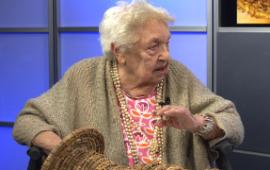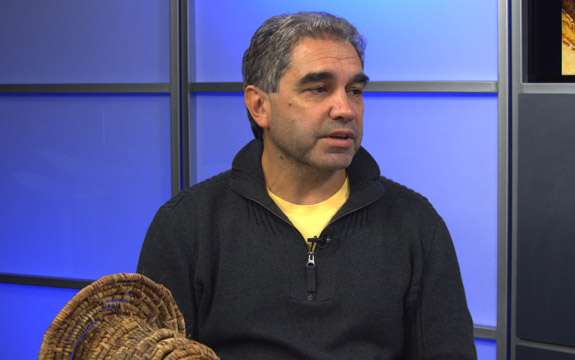Aunty Dot’s life in film

In Summary
- Film detailing the life of Aunty Dot Peters released by Swinburne
- Her son Dr Andrew Peters part of the creative team
- Explores the truths of being an Indigenous Australian
A biofilm detailing the life of celebrated Aboriginal elder, Aunty Dot Peters, has been released by a Swinburne creative team which included her son, Dr Andrew Peters.
The film, Aunty Dot Peters – Truth and Reconciliation, explores Aunty Dot Peters’ connection to culture, her family and Australia. Together with her son, the film explores the truths behind being an Indigenous Australian in the past, present and future.
Guiding the cultural direction of the film, Dr Peters worked with the crew to provide access to family photos and his 87-year-old mother’s insights. He says that seeing the final product and getting to hear and see his mother’s story on film has been a lifetime highlight.
“It’s been great to be able to record some of Mum’s insights into this stuff, and particularly these aspects of local culture and history,” he says.
“The result is a really cool piece of family history that I can keep and use forever.”

Andrew Peters worked with his mother and a film crew to tell her stories
Working closely with Swinburne’s David Yammouni and Professor Josie Arnold, Dr Peters says it was a pleasure working on the film with such an experienced team.
“Their advice and support is second to none – they are true experts.”
Film director Professor Arnold says that while Indigenous Australians have the longest single cultural existence ever known, and are one of the most researched cultural groups in history, their knowledge is severely underrepresented in learning and academia.
“This film acts to bring to the academy the lived experiences of Aunty Dot and Andrew Peters, Wurundjeri and Yorta Yorta people,” says Professor Arnold.
“It brings a significant dynamic element to the university than strictly formulated traditional methodologies. It also enables the teaching of First Nation’s knowledge and the decolonization of knowledge in the academy that is important for all Indigenous and non-Indigenous Australians.”
The complete film is available to watch via Swinburne Commons.

